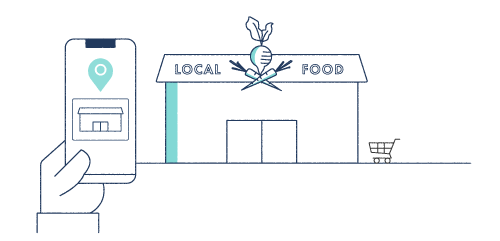Making the most of your partnerships.
Managing relationships with vendors and specialized agencies is key to any marketer's job. Whether you work with freelance web developers and UX designers, or an entire team of digital experts, it’s important to make the most of these collaborative interactions.
At Workshop Digital, we believe in empowering our clients to communicate their results with confidence. We also want our clients to get the most out of their digital marketing efforts.
Generating better results and greater transparency means finding the right answers. For marketers, these answers are the difference between presenting qualitative results versus proving quantitative ones to the rest of the C-Suite.
This starts by asking a digital marketing partner the right questions. Asking the four questions below will help you build an effective digital strategy — and meet your business goals.
1. How will you help us reach our business goals?
2. How does digital complement other marketing channels?
These days, digital marketing is the most important tool of the marketers’ trade.
1. How will you help us reach our business goals?
Digital marketing strategies are collaborative endeavors between marketers and the agencies they hire. Starting each conversation with your near-term and long-term business goals sets a precedent for the role you expect a digital channel to play in reaching them.
Aligning these goals and establishing expectations for future digital marketing results leads to more targeted agency efforts. Together, you create a better framework for agency accountability where success is measured by the relationship between current results and current goals.
What are digital marketing KPIs?

Surface-level KPIs expose the disconnect between data and insights. "Vanity metrics" like total visitors obscure important connections. If site visitors are up 10%, which visitors are they? And what value do they have if the near-term business focus is sales?
Similarly, a metric like site-wide conversion rate could be skewed by successful brand-building efforts. Digital marketing KPIs extract value from data and provide actionable analytics segment traffic in several ways:
- Understand the Stages of Online Interaction
- Acquisition
- Engagement
- Conversion
- Plot Key Points in Consumer Journey
- Awareness Familiarity/Research
- Consideration
- Purchase
- Loyalty
A focus on just these two areas can immediately
narrow measurement to more meaningful KPIs that connect to broader business goals.
So how should you measure digital marketing success? By connecting data to broader business goals.
2. How does digital marketing complement other marketing channels?
For many marketers, this is a question they’ve never considered, mainly because it requires a nuanced understanding of how individual marketing channels interact. Below is an example of why it’s a critical question:
Let’s say you separately hire a brand marketing consultancy and a digital marketing agency to manage your creative and lead generation strategies, respectively. Both are leading industry experts.
As the brand marketing team makes progress and your awareness levels rise, more prospective customers search for your company on Google and other search engines. Meanwhile, the digital marketing agency reports an increase in leads because there's more traffic flowing through organic channels that they manage.
Transparency and efficiency are compromised in siloed services, which incentivize taking credit rather than collaboration between digital channels.
If an agency sells only traditional marketing, they will recommend more traditional channels. The same goes for digital agencies. Selling one piece of the marketing puzzle has the potential to create friction between agencies and clients because, at one point or another, achieving overarching client goals can work against multiple agencies' individual priorities, as each is held accountable for its individual contribution.
Collaboration has tremendous value. Many PPC campaigns send traffic to pages managed by SEO teams. SEO teams develop content promoted by social media teams. And content marketers deploy blogs, white papers, and visitors that depend on a technical structure to make them visible to search engines. When traditional and digital teams work closely together, you'll get more efficient communications that lead to clear set expectations and accountable agency partners who can strategize effectively.
3. How are you helping me communicate results?
The CMO Survey is an annual report provided by Duke, Deloitte, and the American Marketing Association that collects and analyzes the opinions of top marketing leaders to predict the future markets. The February 2020 edition revealed that using quantitative metrics to demonstrate the impact of marketing remains a challenge for CMOs. And it found that growth is the most important KPI for evaluating marketing performance relative to ROI.
This rings true in the age of analytics. Even if data is true, that doesn’t mean it’s persuasive—especially for marketers that report to the C-Suite. This is why it is so challenging to communicate value—disparate channels, operated by various agencies and in-house teams, with qualitative results that ignore or even cannibalize one another across channels.
We know that not every digital marketing metric will be positive in every report. Digital marketing requires experimentation, with success and failure.
Your digital marketing agency should empower you to communicate results that validate your digital marketing investment.
This starts by measuring digital marketing success based on company-wide goals and ensuring all digital marketing teams row in the same direction. But it extends even further. Persuasive digital marketing results draw a straight line from analyst actions to bottom-line growth. They allow marketers to win a bigger budget for what works, stop spending for what doesn’t, and win C-Suite buy-in for both.

4. Does your work strengthen our brand?
Traditional media agencies operate at the strategy end of the strategy-services spectrum. They shape brands and drive awareness. Digital marketing started at the opposite pole, with a utilitarian focus on elevating the quantitative achievements within each channel.
Initially, this came at the expense of integrating digital marketing services into a more holistic marketing strategy. For a while, more traffic and clicks were good enough, no matter how you got them, even if that meant adding unnatural, keyword-dense copy to your homepage, or cranking out two derivative, hastily written blog posts each month.
But search engines have gotten smarter, and digital
marketing services now support brands through search-engine-centric optimization
and content development.
Branded searches are legal monopolies protected from virtually any change to search engine algorithms. They are the most sustainable and valuable source of leads and customers for any business.
Moreover, a user clicking a branded PPC ad also costs less than a non-branded click from the same user—increasing branded query volume saves PPC budgets.
All these are questions we encourage clients to ask us, and they inform our agency’s development, from the creation of a forward-looking, on-demand client dashboard, to our commitment to keeping analysts in direct, regular contact with CMOs and other decision-makers.
What does "branding" mean in local search?
For local searches—ones in which consumers seek a product or service within a specific geographic area—Google’s algorithm functions on three primary factors:
- Location: Where are you?
- Relevance: How does your content connect to the searcher's query?
- Prominence: How notable is your brand?
Most businesses that have Googled themselves online have found the “local pack” results, which display three results. Appearing in the local pack depends in large part on the consistency of local signals: Name, Address, and Phone Number.
Still, how does a business expand its reach after it ranks highly—perhaps even first—in local pack results? How does a hospital system attract patients that live slightly closer to other hospitals? Ultimately, Google’s emphasis on the first factor, will largely outweigh the other two. It has too much consumer data that suggests users are looking for the closest version of a product or service.

The answer is its brand. While e-commerce companies often have a near-limitless source of new customers to tap around the world, local businesses, after saturating their immediate location, grow only by expanding their reach. And brand building does just that. An online presence that builds a brand does not influence search signals but actually drives up the number of branded searches, and increases click-through rates even when a site, due to its location, may never rank among the top three results.
Benefits of Hiring the Right Digital Agency
Workshop Digital realizes that no two companies or marketing teams are the same. What works for one marketing team may not work for the next.
You need a partner who’s truly invested in your success. One that takes the time to analyze your unique needs—and proactively manages your digital channels to ensure they’re optimized and performing. You need an agency that not only provides you with current industry best practices, but one that’s constantly looking to the future.
Digital marketing has crossed a threshold where expertise requires collaboration.
At Workshop Digital, the answer has always been integrated digital marketing. Because we specialize in multichannel marketing solutions that extend across the entire funnel, our cross-service teams of analysts collaborate to ensure that services improve, not compete with, one another.
Hiring a digital-specific agency partner that specializes in multichannel digital marketing can help ensure you’re investing in the channels that make sense for your team. Our collaborative approach is designed to educate your team on how you can grow. And as a true extension of your marketing team, we work to handcraft strategies that drive long-term results.